Table of contents
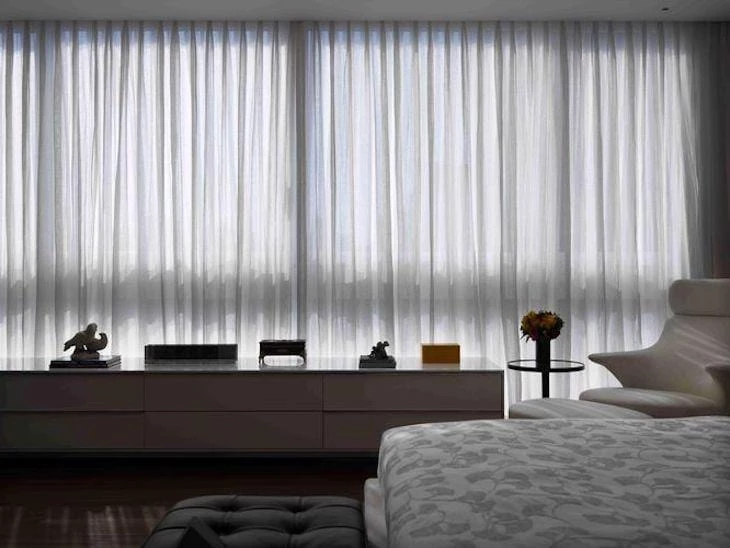
It may seem like a mere detail, but a curtain can play a very important role in an environment. According to architect Vanessa Sant'Anna, it is responsible for bringing comfort, controlling the room's temperature and lighting, as well as adding enormous charm to the decoration and ensuring more privacy.
For a complete decoration project, it is fundamental to choose a model according to your profile and needs:"opt for neutral colored fabrics so as not to compromise the rest of the decor."
The first step to be taken before choosing the ideal curtain for your room is to define which decoration style you want to follow, and then understand what your options are and their respective functionalities. Below you will find their variables and tips on how the architect likes to use them in her projects:
Curtain models
Once you have chosen the decoration style for your dorm room, you will have to choose between:
See_also: Sidewalk Stone: 5 popular and affordable optionsTraditional curtains
"I would use this type of curtain in any style of decor. Traditional curtains are best installed directly on the ceiling/plank (in the rail option) or very close to the ceiling (in the rod option), going all the way to the floor, preferably on walls free of furniture and with space on the sides to accommodate the fabric when the curtain is open. Works well for those who want a bedroomextremely cozy," explains the professional.
Roller blinds
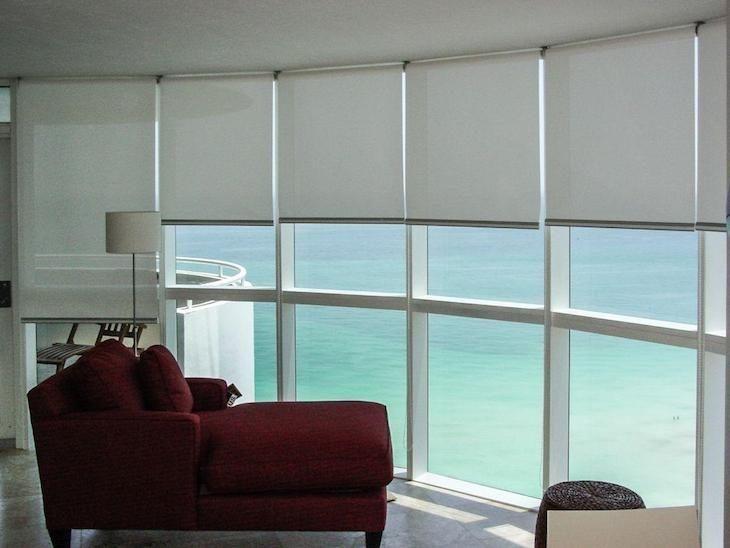
"Indicated for clean and/or contemporary style environments, they are very practical and most of the fabrics suitable for this model are easy to clean," comments the architect.
Blinds
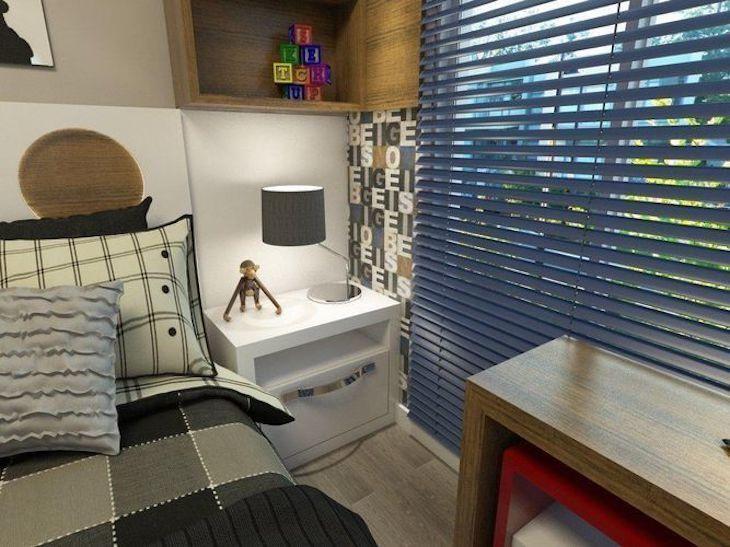
Blinds offer the same ease as roller shades and are perfect for young bedrooms, or for those who wish to bring a little more sophistication to the environment. It is possible to find horizontal and vertical models on the market.
Roman Curtain
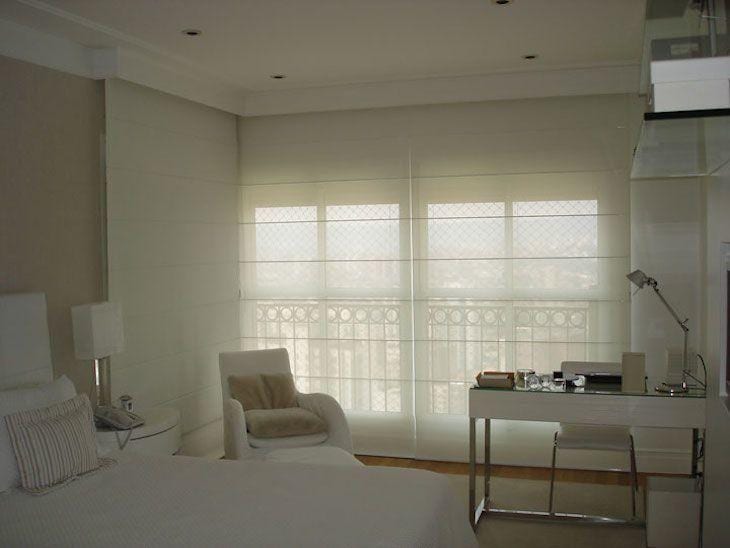
"This model matches very well with sophisticated and elegant environments; they are charming, practical, and can be made with an infinite number of fabrics," says the architect. For those who wish to dim the lighting, this option is ideal.
Panel
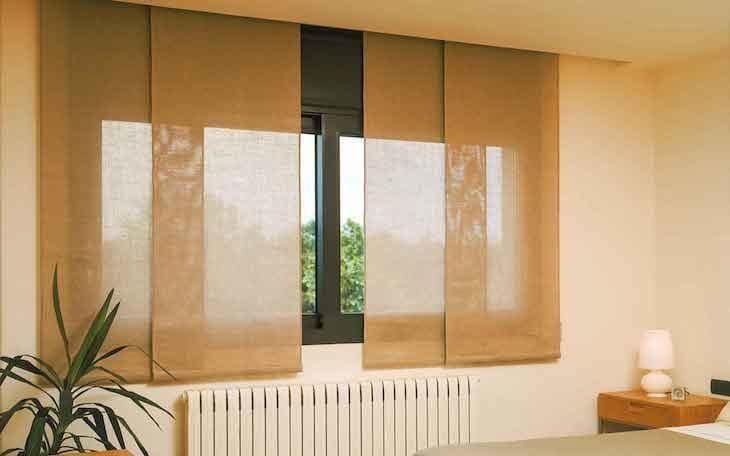
"Therefore, if you want lightness in your bedroom, it is worth trying this type of curtain.
Blackout or blackout light
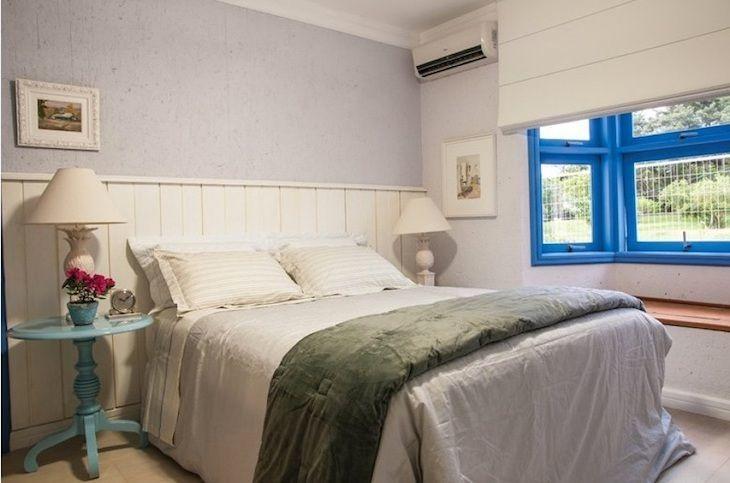
"Blackout fabrics are indicated for those who want to totally block the entry of light into the room and can be used in several models of blinds. In addition, this type of fabric guarantees 100% privacy," says the professional.
Double Vision
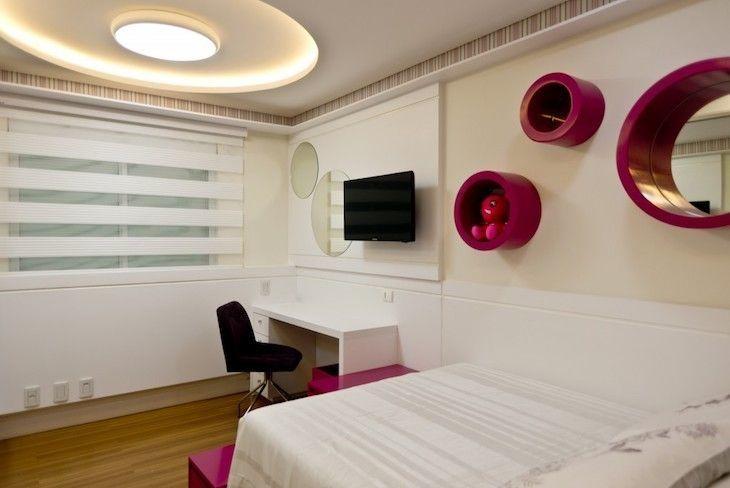
"This type of blind is composed of parallel fabrics that allow various levels of opening/visibility, it goes well with almost any decorating style."
Curtain accessories

Accessories are essential for those who wish to add a luxurious touch to their decoration. For curtains made of fabric, the use of a clip is necessary to secure the piece and increase ventilation when the window is open. The following list presents other types of functional accessories:
Built-in curtain
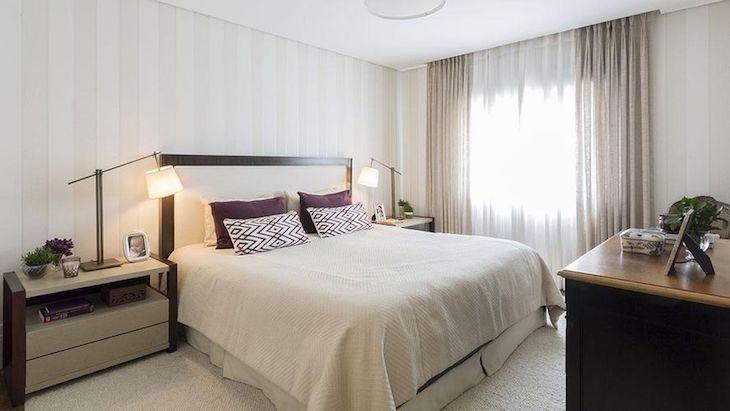
This is the option used in apartments with an installed crown molding: "The built-in curtain makes the room lighter and more elegant, since the rail is totally hidden in this option. It goes well both in classic and contemporary environments," adds Vanessa.
Curtain with a band
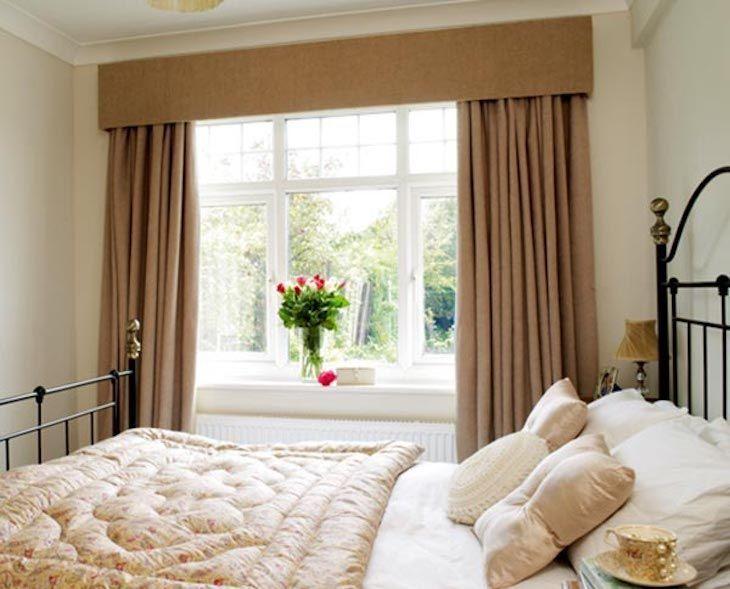
"The use of the bandon is indicated to hide the curtain track where there is no built-in curtain. It goes with all styles, since it can be made in several materials and finishes. Its use in more stripped environments is my favorite", comments the architect.
Curtain with motorized drive
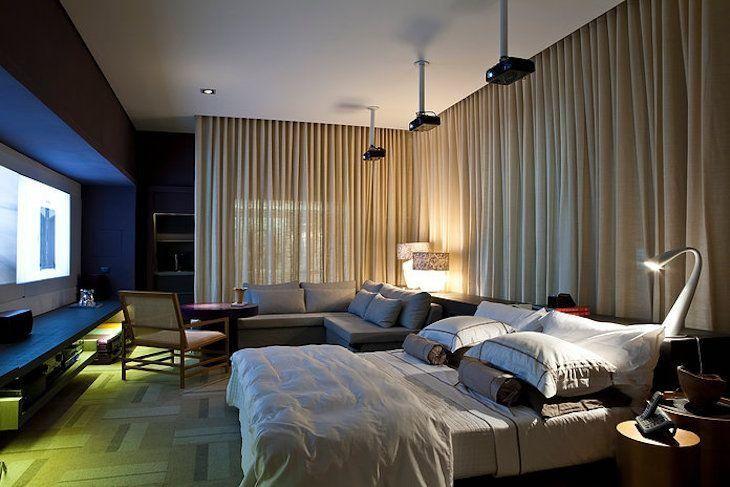
Who has never dreamed of a curtain like this? "Recommended for environments that already have automation resources, so that the opening and closing of the blinds can be controlled by means of tablets, in person or remotely. This model is also indicated for those who do not yet have automation at home, but do not give up practicality, comfort and agility, since the blindsautomated systems can be controlled by remote control.
Fabrics for Bedroom Curtains
From heavy to translucent, the existing proposals for making a curtain are countless. The printed ones with strong colors can add more personality to the decoration, but should be combined with other more neutral choices.
Thicker fabrics should be avoided in small windows and rooms with little ventilation. See which one suits your bedroom best:
Heavyweight curtain fabrics
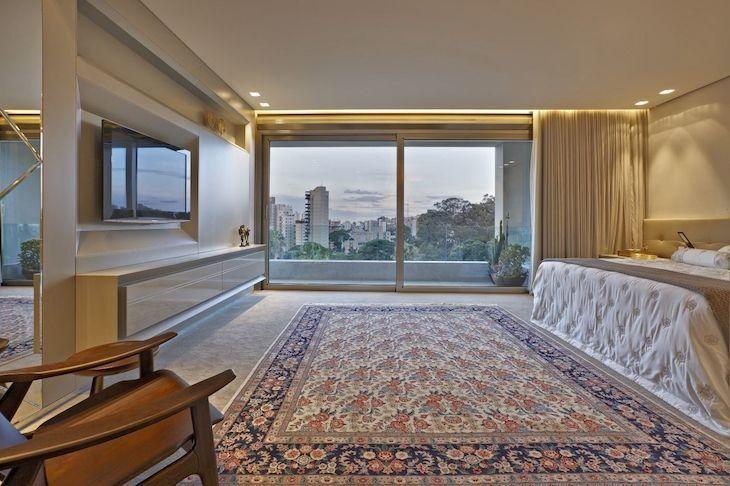
They are: Shantung, Silk, Denim, Velvet, Chenille Twill, and Pure Linen, and tend to be much more luxurious. They are also ideal for controlling the luminosity of large windows and balcony doors, but be careful not to limit the environment's natural ventilation.
Lightweight curtain fabrics
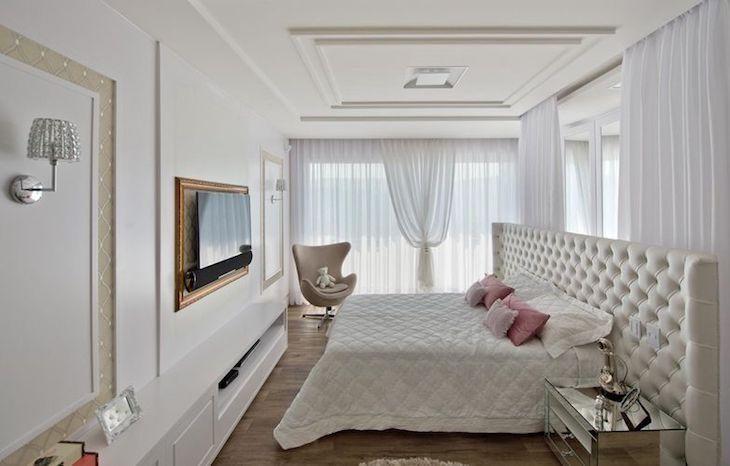
Silk Straw, Chiffon and Crepe are less transparent than the usual Voil and Organza, but they are all very beautiful and well suited to become the perfect curtain.
Curtain lining fabrics
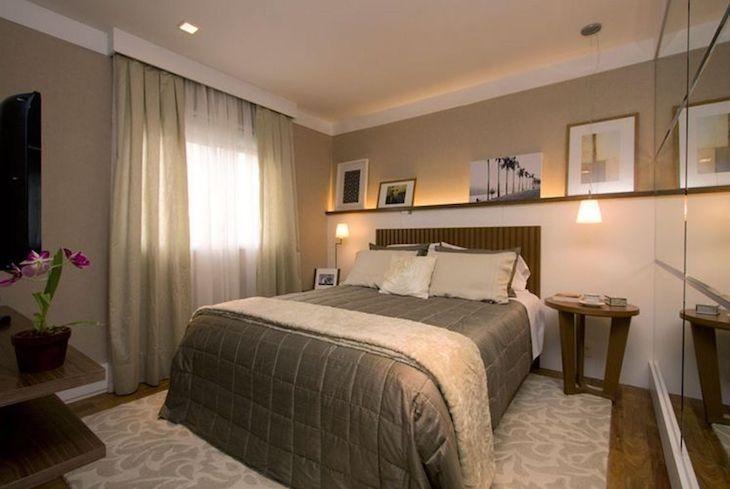
Materials with 100% Cotton are the most favorable. Gabardine, Tergal, and Microfiber are excellent choices for a perfect lining.
8 tips for choosing curtains for your room
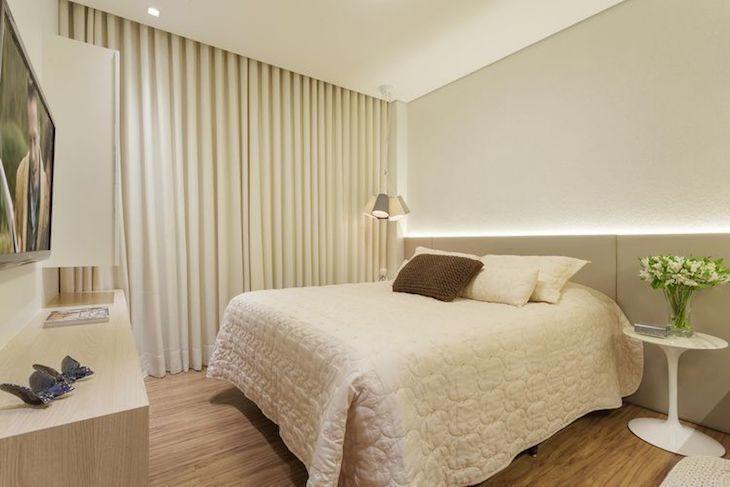
To choose the right type of curtain, check out the tips provided by the architect to help you in this important task of decorating your room:
See_also: TV Panel: 85 models and colors for you to get decoration ideas- Before you buy or have your curtains made, check the measurements more than once so you won't make a mistake!
- Overhang on the sides: For the curtain to be aesthetically perfect and also functional, it is important to leave a wall "overhang" on each side of approximately 20 centimeters.
- If the idea is to have a curtain from the ceiling to the floor, make a bar approximately 1 centimeter above the floor. And don't forget the margins mentioned in the topic above!
- A piece of furniture below the window requires short, narrow curtains, preferably proportional to the size of the window, and at least 1 centimeter away from the furniture. Short curtains that take up the entire wall are a visual nuisance. Let the remaining wall be filled by a painting.
- The ideal distance from the ceiling to the exposed rod or rail is 20 to 30 centimeters above the window.
- If the ceiling height of the room is very high, above 2.70 meters, there are two options: either you install your curtains halfway between the ceiling and the window, or very close to the ceiling. This last alternative only works well if the curtain reaches the floor, to give the room that feeling of spaciousness.
- If the house has plasterwork, it is important to find out how much space is left for your curtains before choosing which model to use. Usually the standard size for this type of installation is about 15 centimeters.
- If the window is low, install your curtain at a higher height than the window, so as not to give the impression that the room is flat.
50 room curtain models to inspire you
After the technical explanations, it's time to get inspired! Check out some works by professionals that can positively influence your choice:
1. all the charm of a classic version
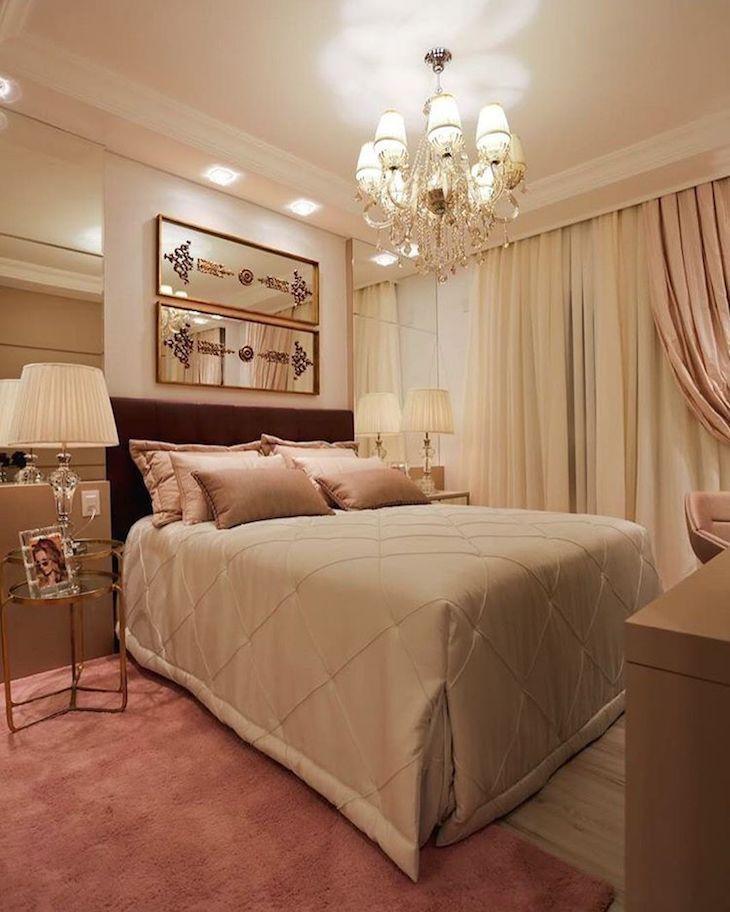
2. neutral colors are always very welcome
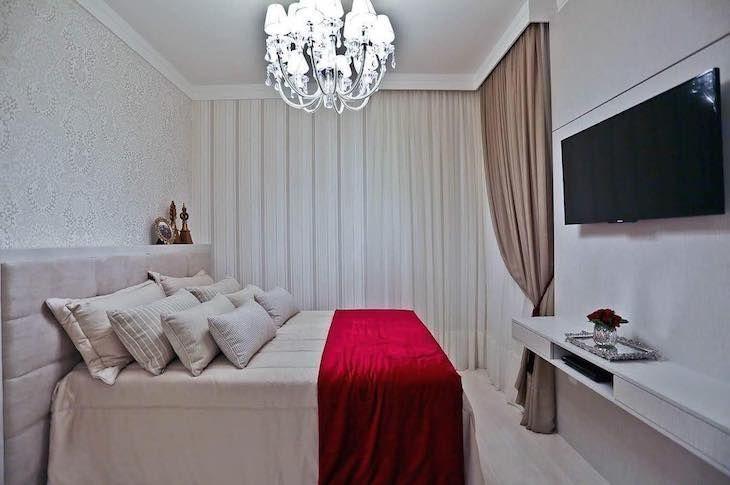
3. the pink room became even more delicate with the white curtain
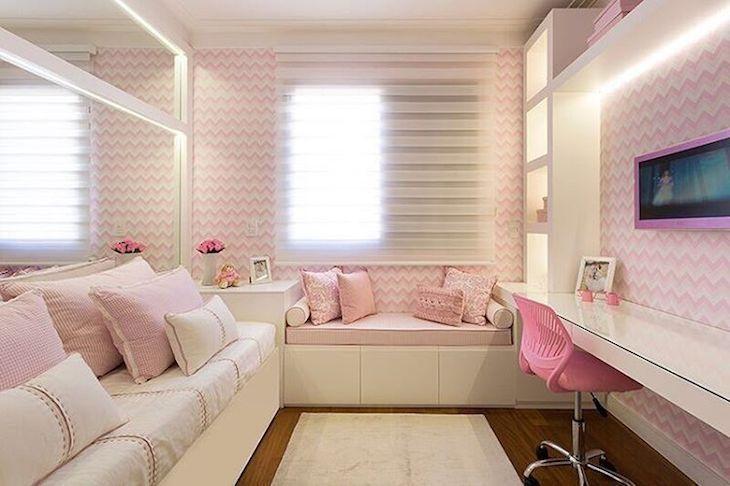
4. some models are perfect to completely hide the window
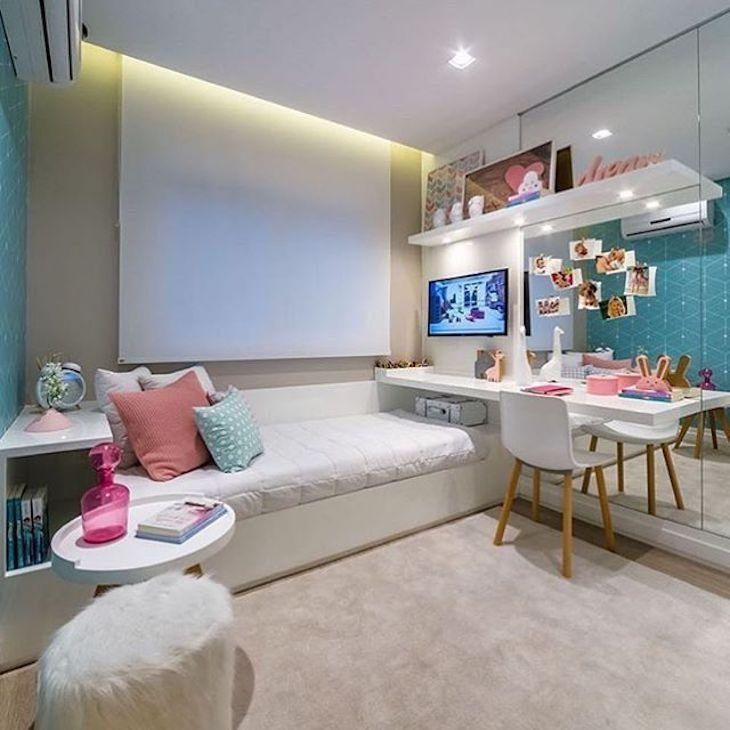
5. the built-in curtain is ideal for those who choose to install a crown molding in the room
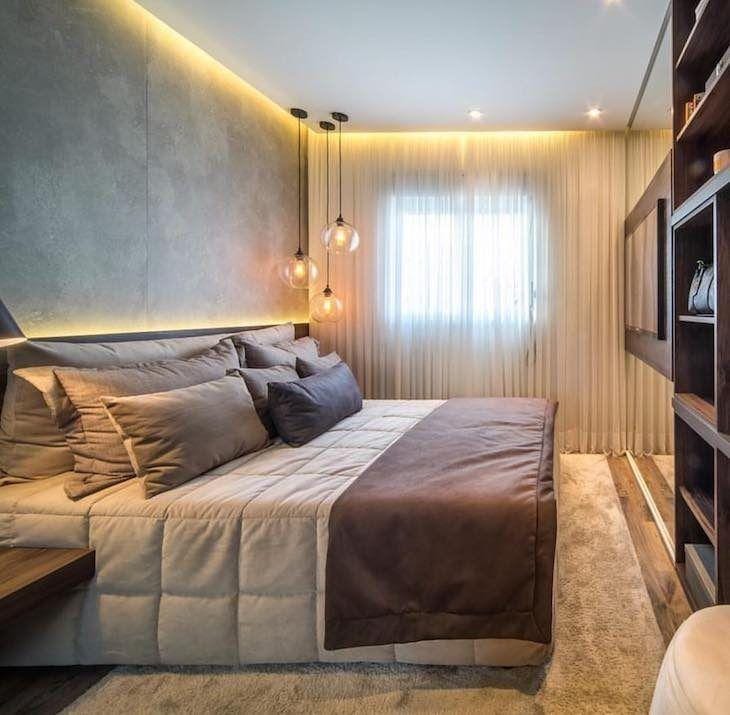
6. if you don't like the apparent clothesline or rail, install a banderole
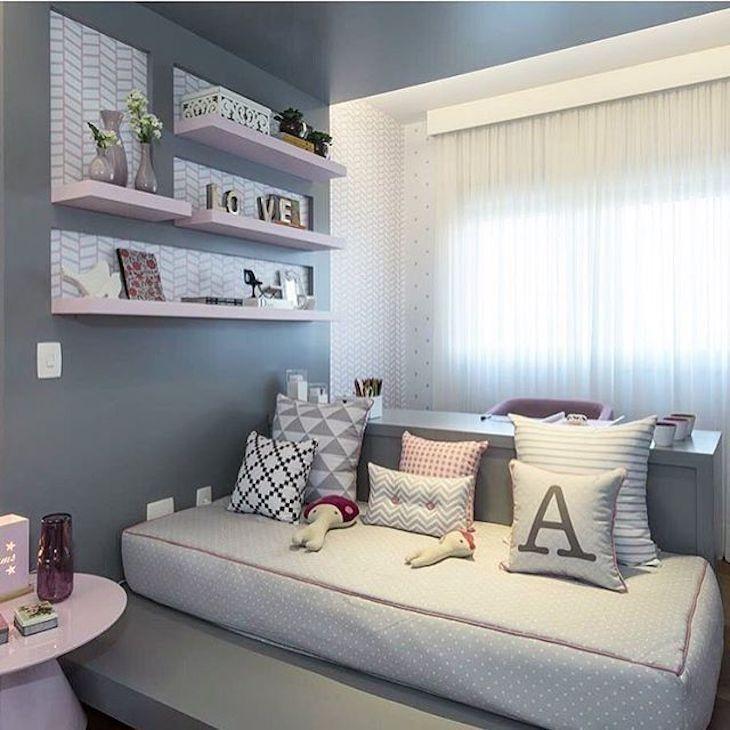
7. the lined curtain gave the little girl's room an extra touch
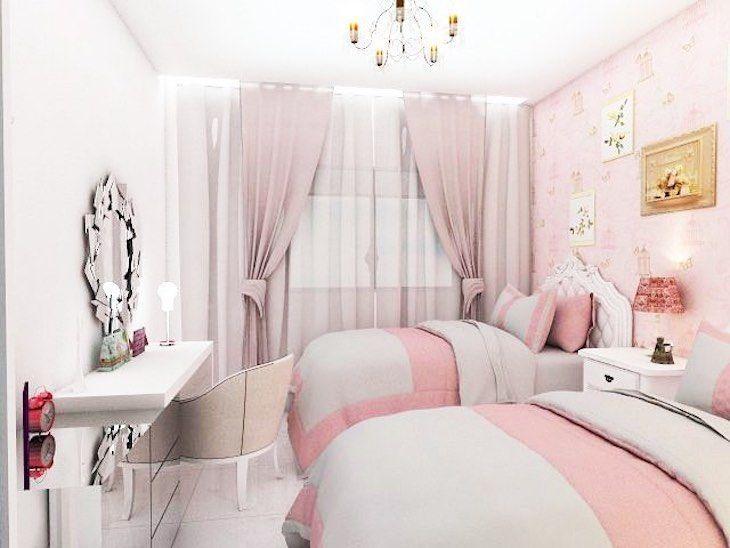
8. satin tones guarantee elegance to the bedroom
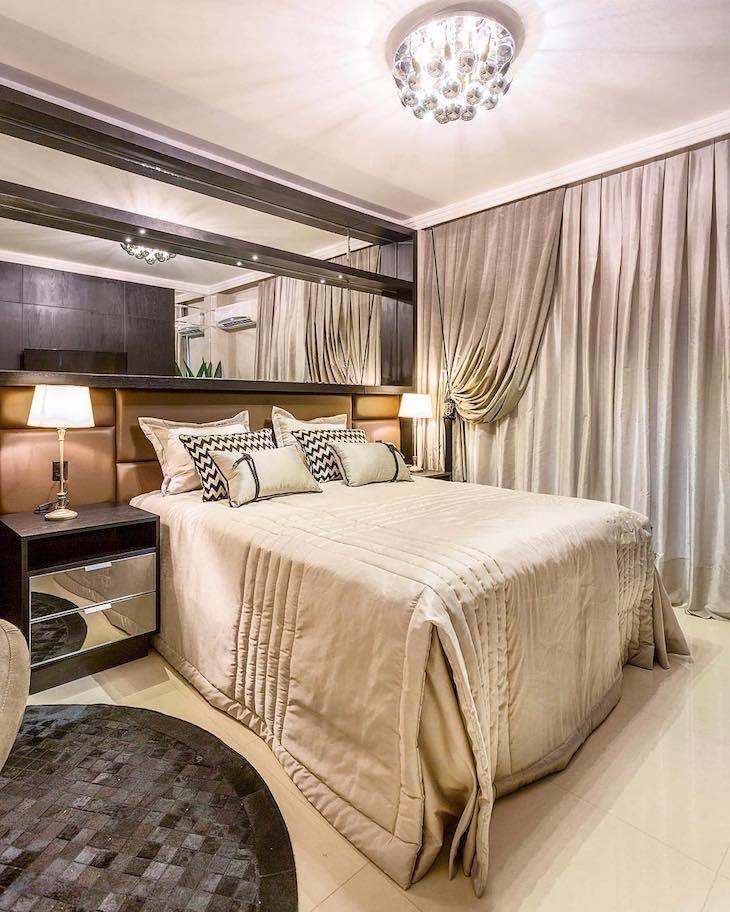
9. a break from the basics
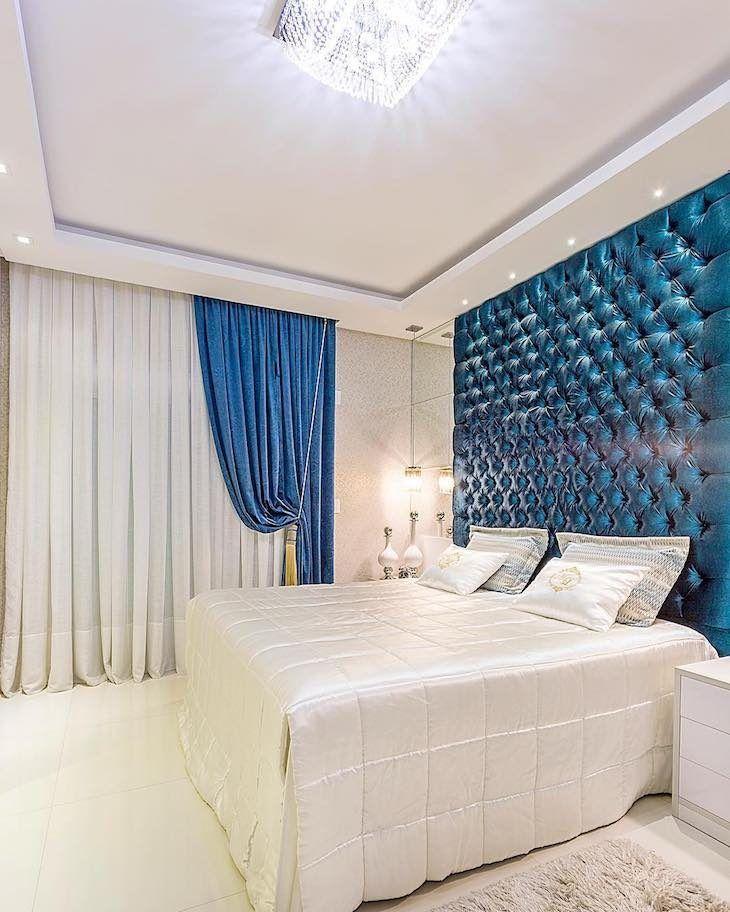
10. Can you imagine this room without curtains?
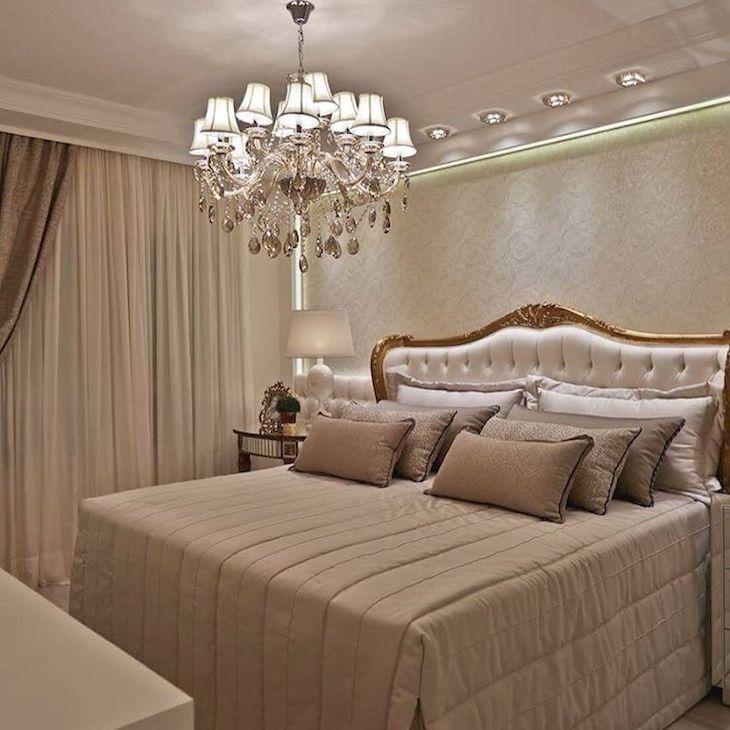
11. double vision gives an incredible effect to the environment
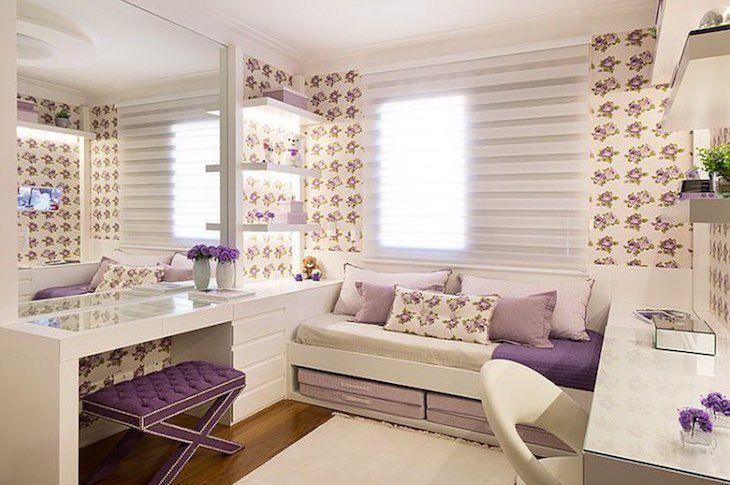
12. when the curtain is the star of the house
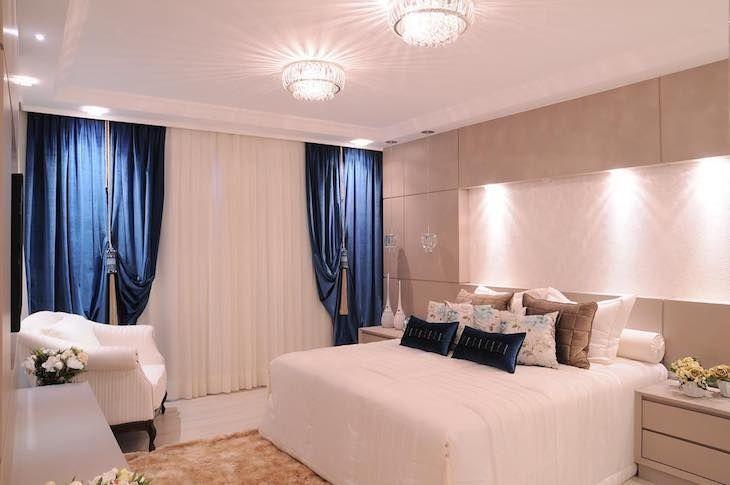
13. a romantic mood for the Provençal bedroom
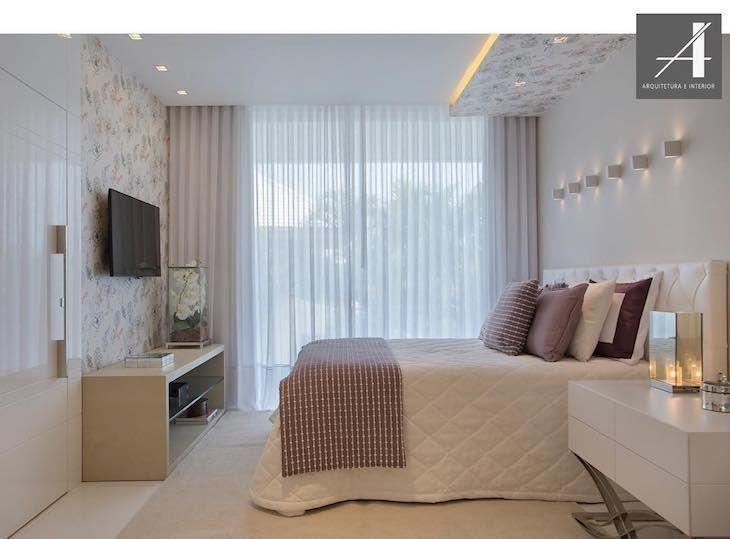
14. protecting baby's sleep
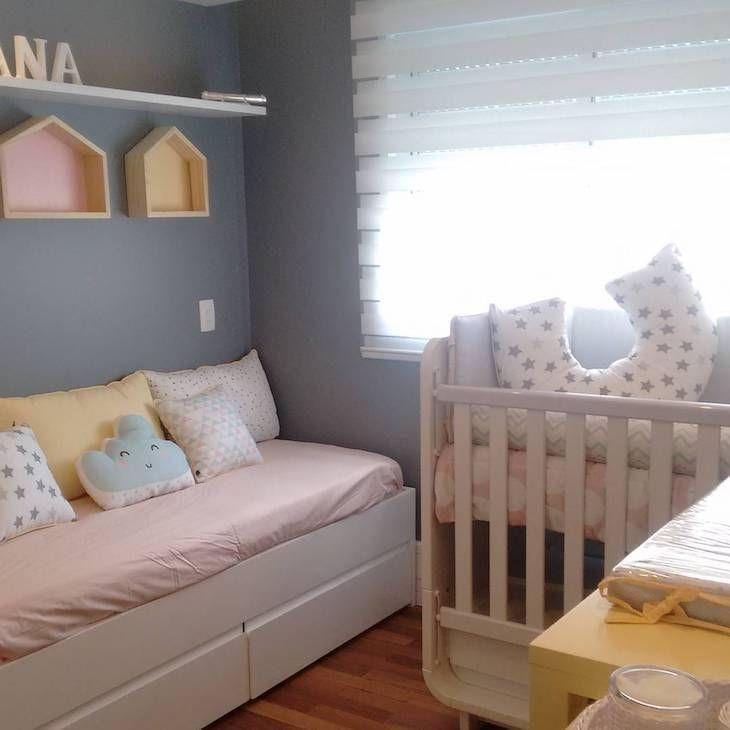
15. pink and black for a room full of personality
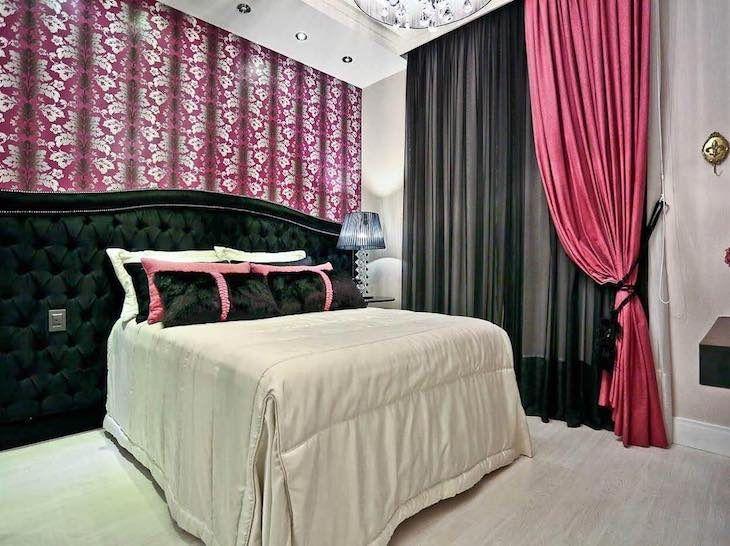
16. blackout is fundamental for light sleepers
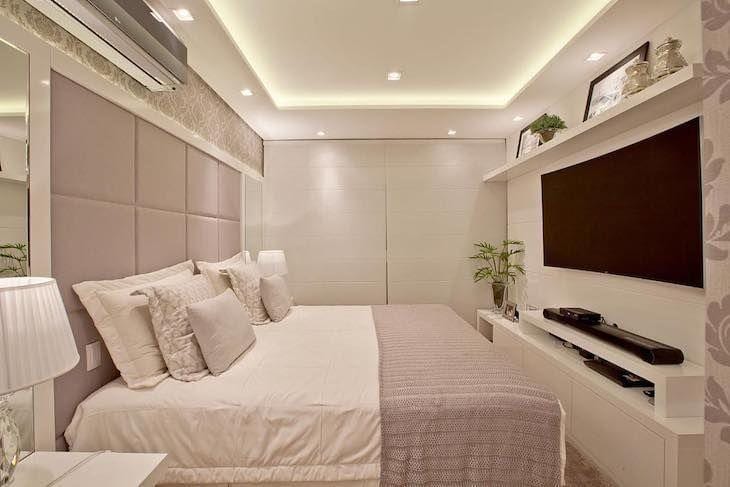
17. see how the chosen tones and lighting made the bedroom much cozier
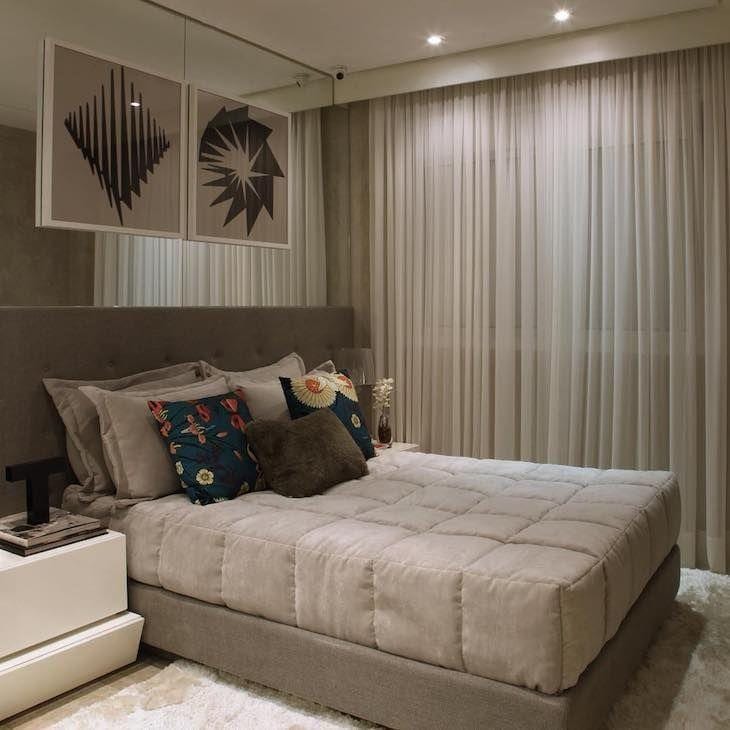
18. combining traditional curtains and blinds
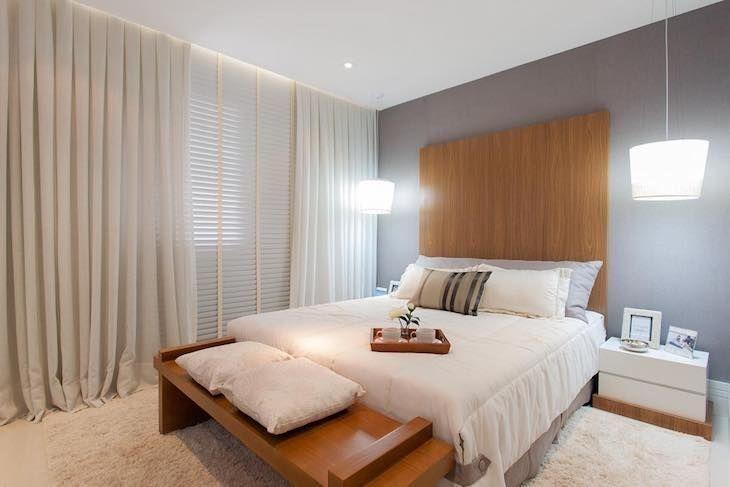
19. it is impossible not to fall in love with such class
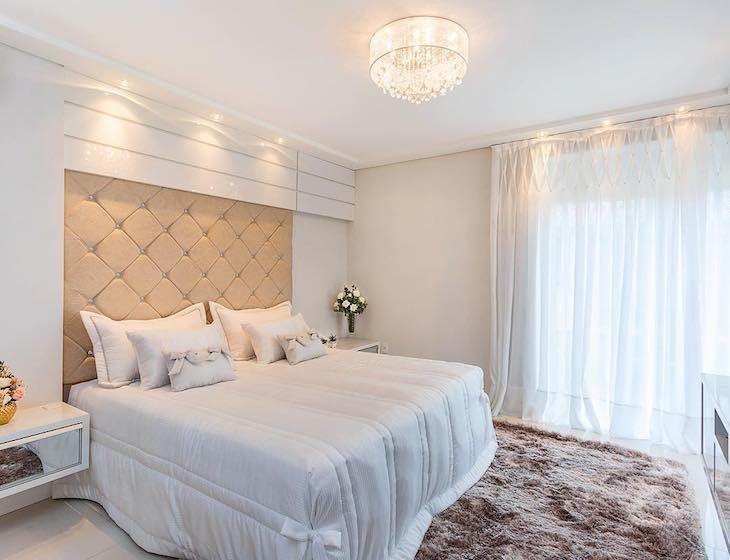
20. a perfect combination with two different types of fabric
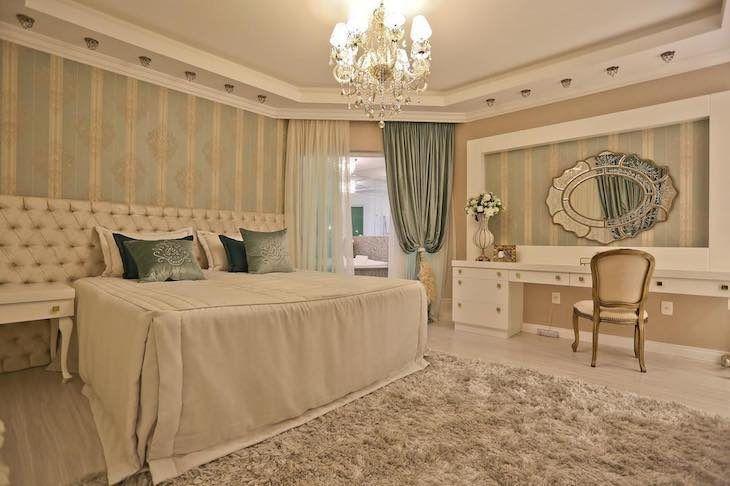
21. here the blackout served as a lining for the fabric curtain
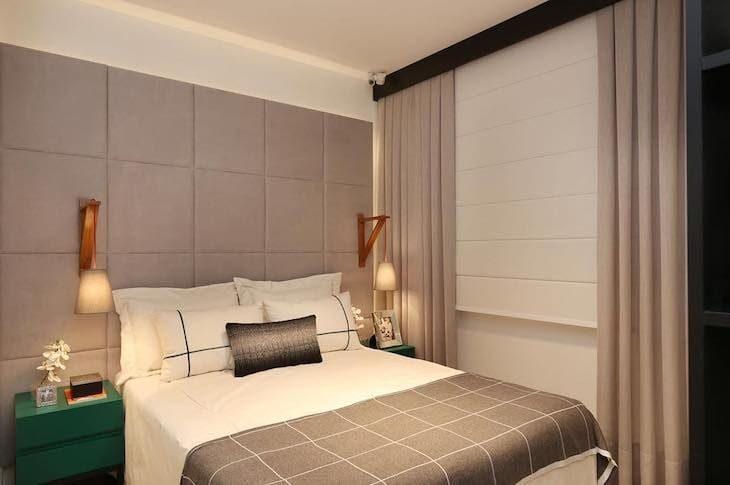
22. a minimalist choice
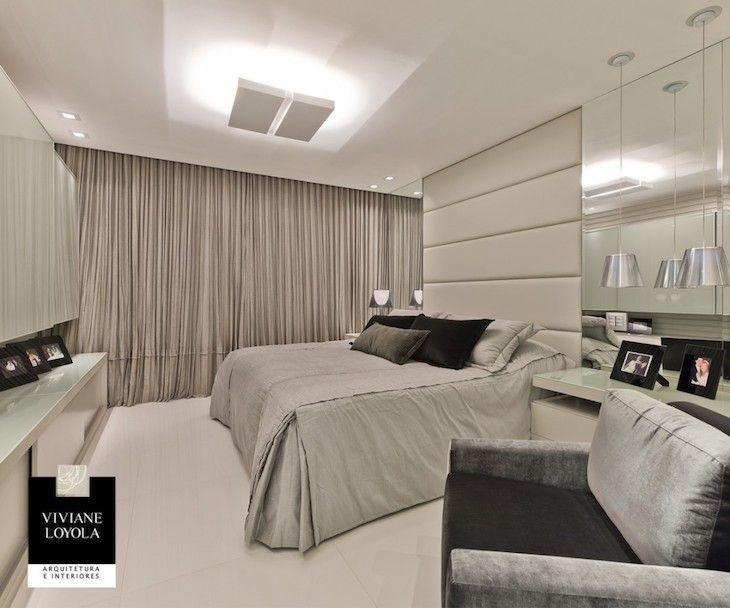
23. details that made all the difference
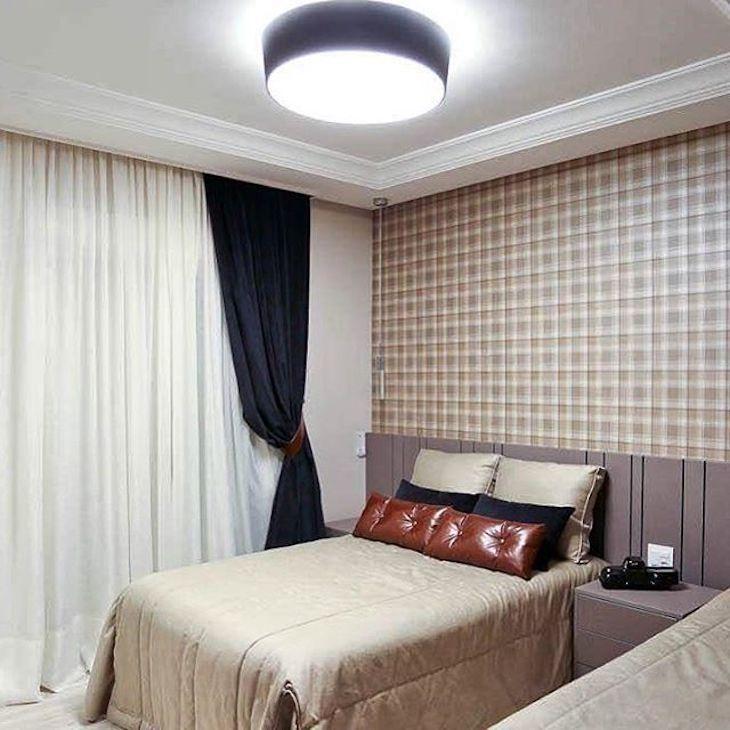
24. shutters give a touch of modernity
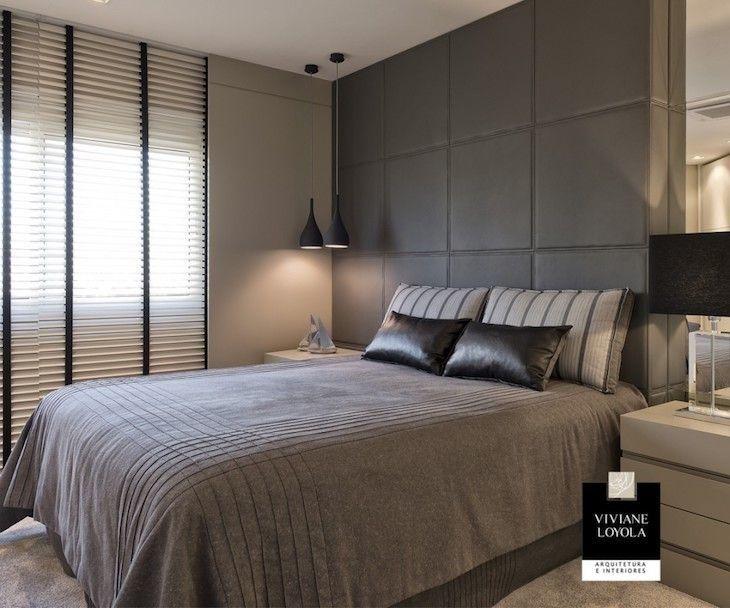
25. a way not to miss the beautiful scenery outside
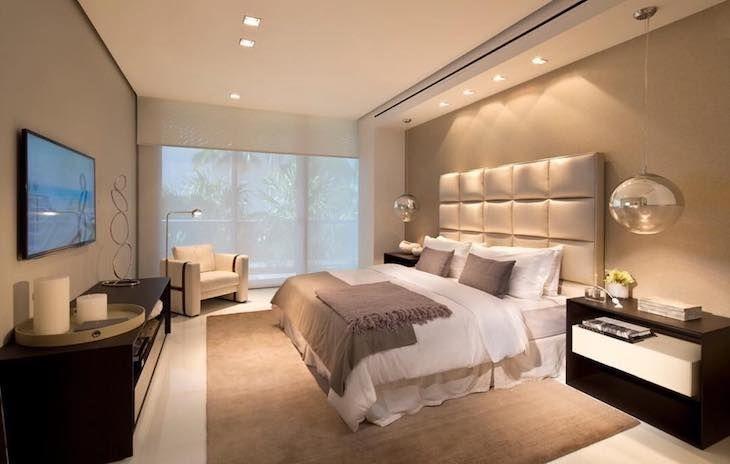
26. colored bandone
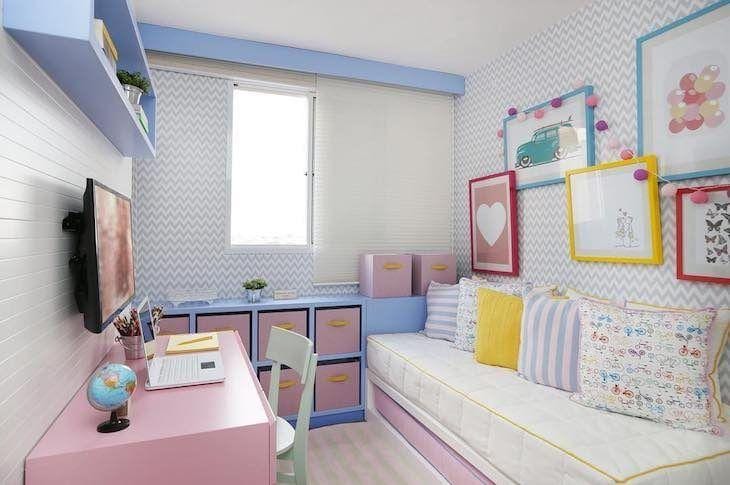
27. traditional curtain with rail
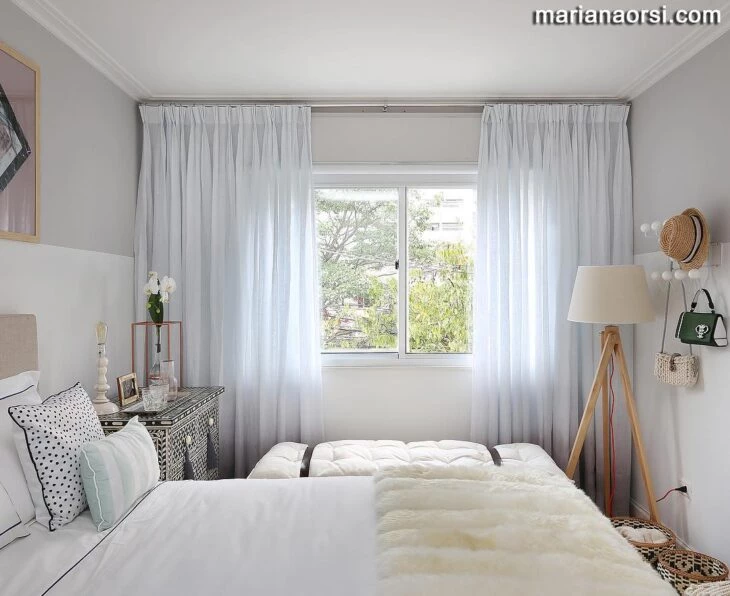
28. how about decorating the blinds with little flags?
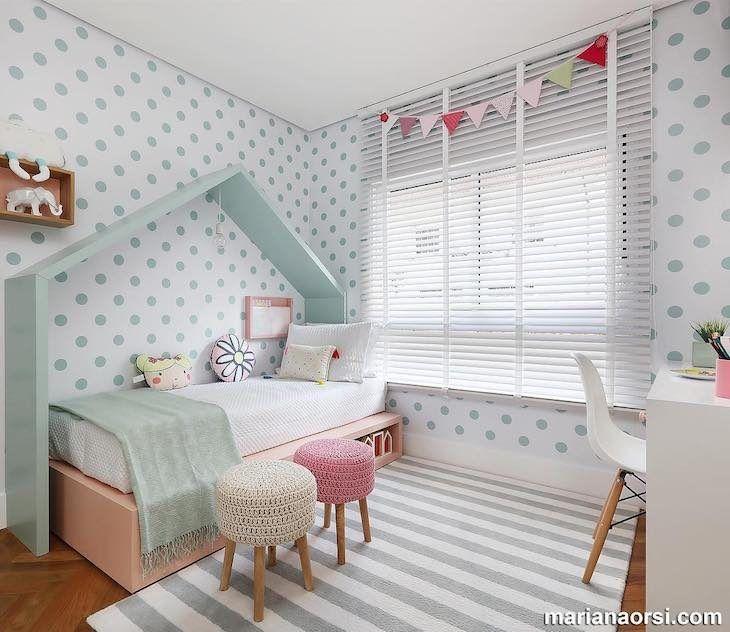
29. ceiling to floor
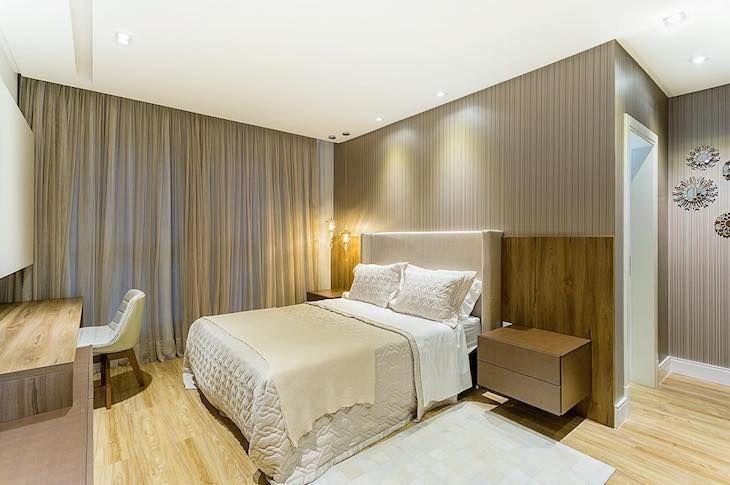
30. the panel continued the clean mood of the room
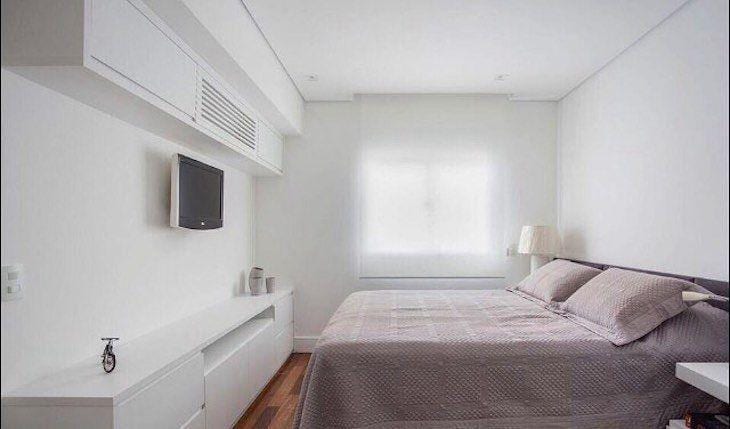
31. the colors of both curtains did not deviate from the tones used in the decoration
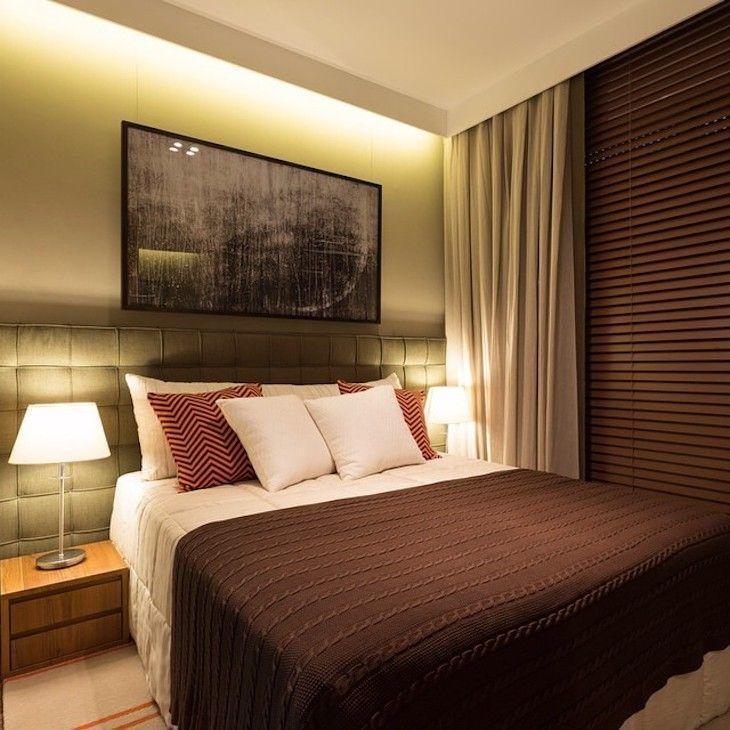
32. curtains matching the wallpaper
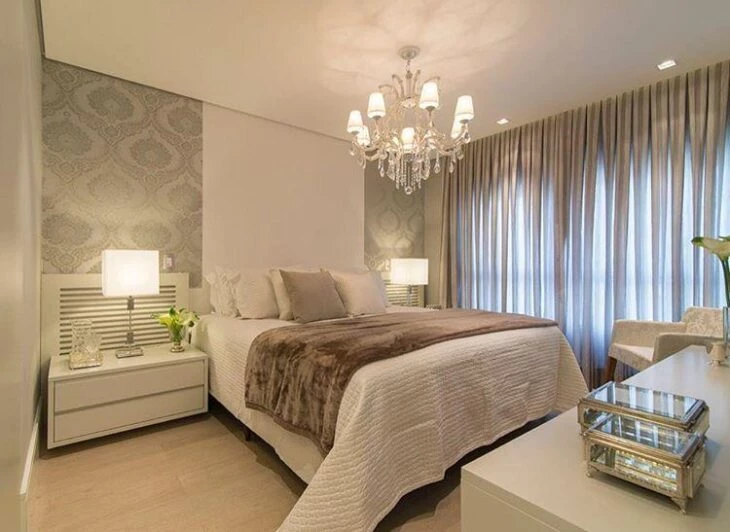
33. large curtains give the feeling of amplitude to the ceiling height
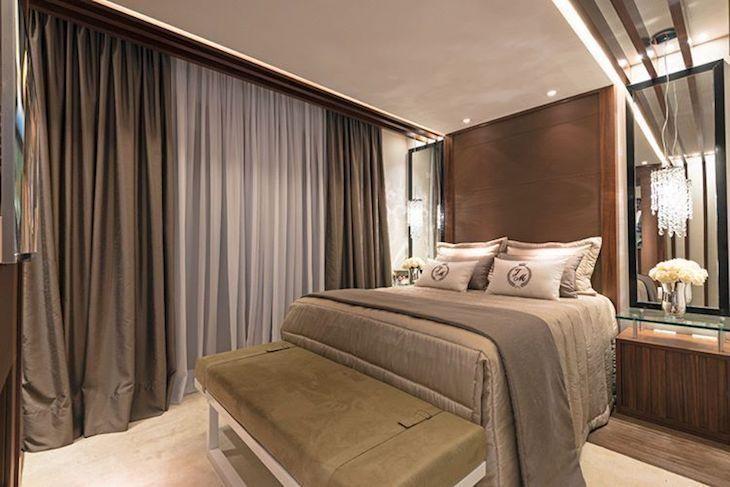
34. green and white
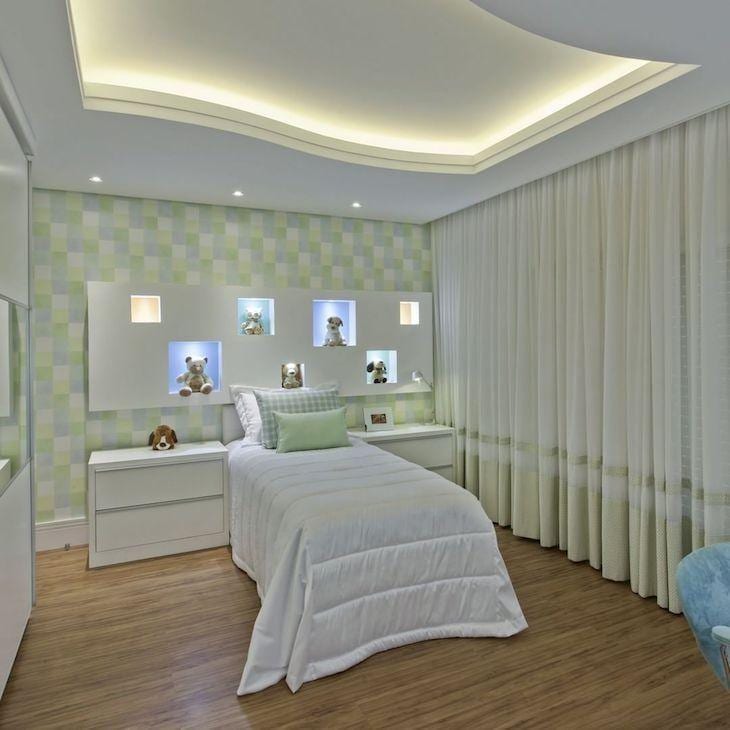
35. practicality for the juvenile room
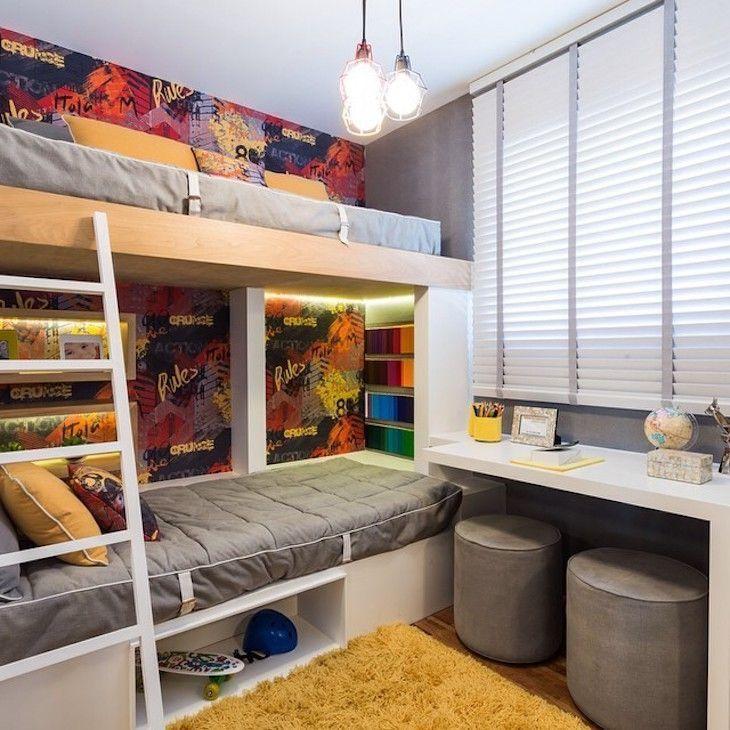
36. the light curtain brought comfort and coziness to the environment
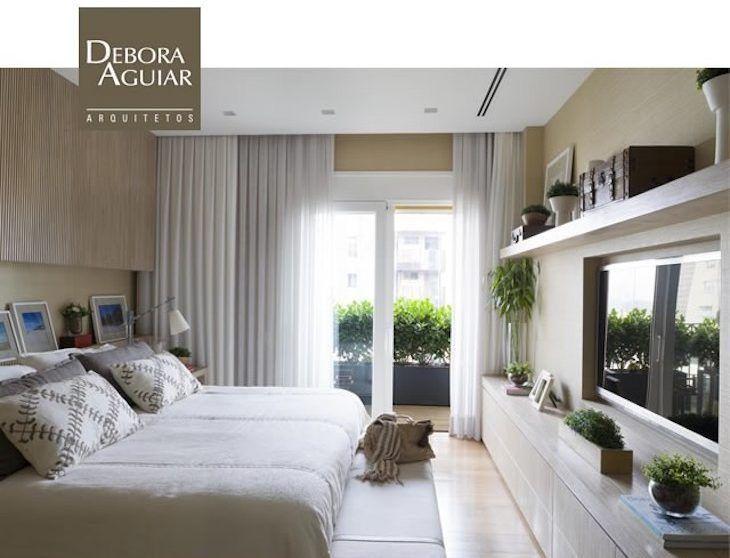
37. a pinch of joy
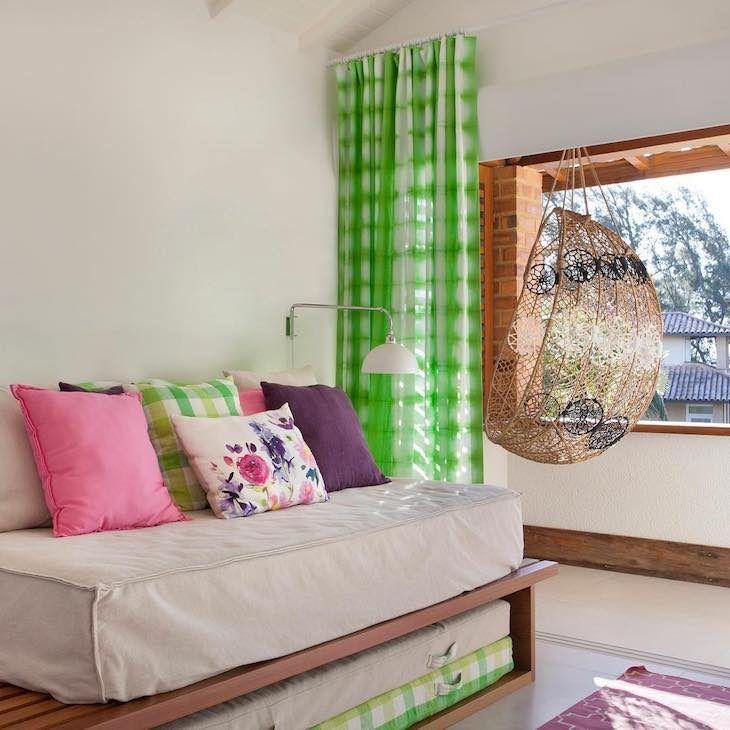
38. the wooden shutter warmed the room
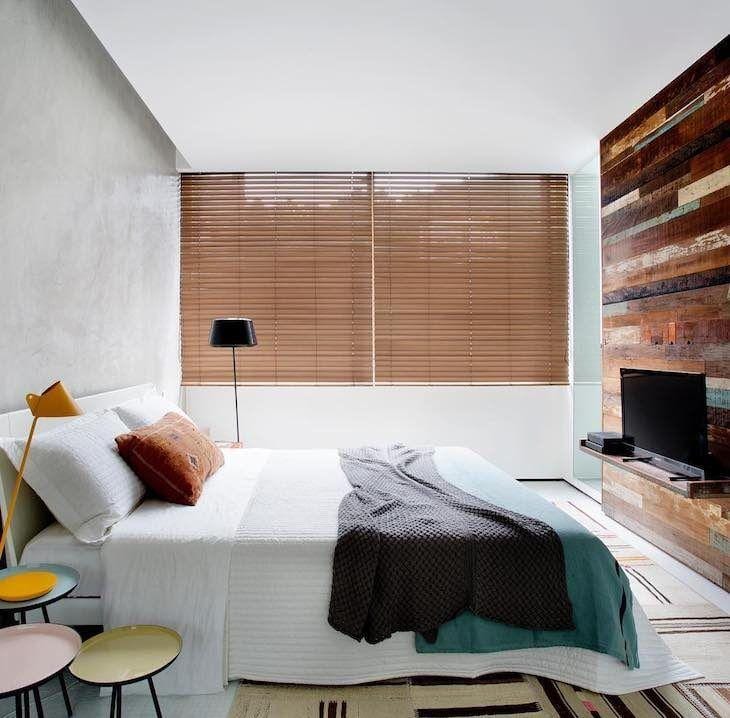
39. earthy tones mixed with classic decoration
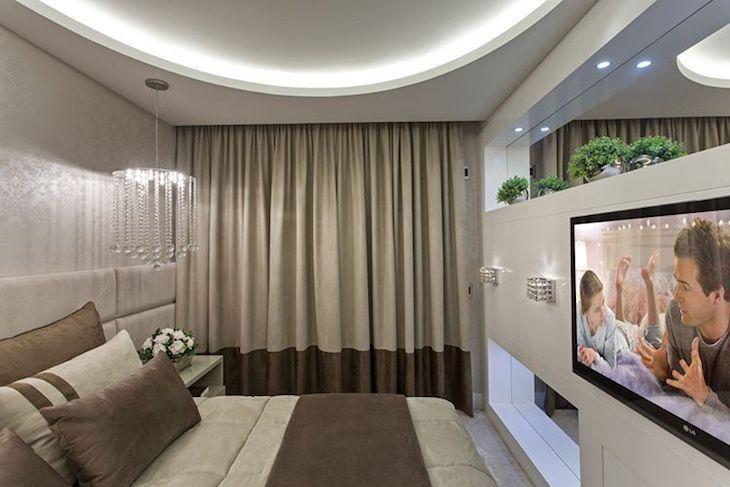
40. covering the entire wall
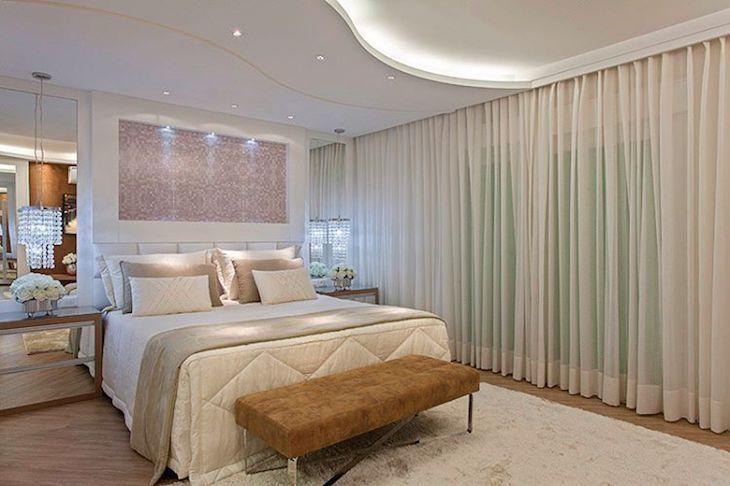
41. tone on tone
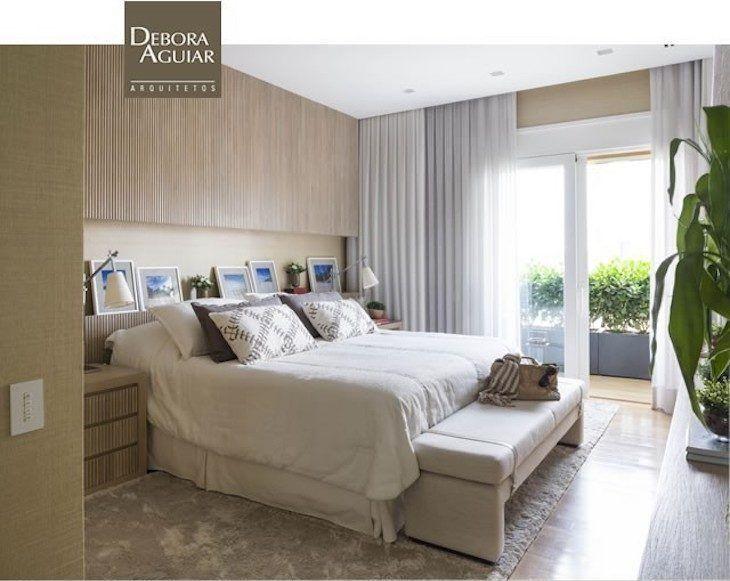
42. shutters are ideal for contemporary decors
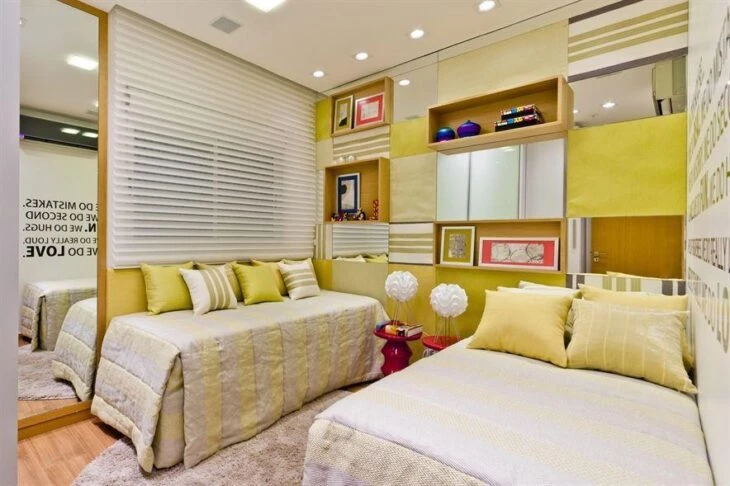
43. an elegant choice
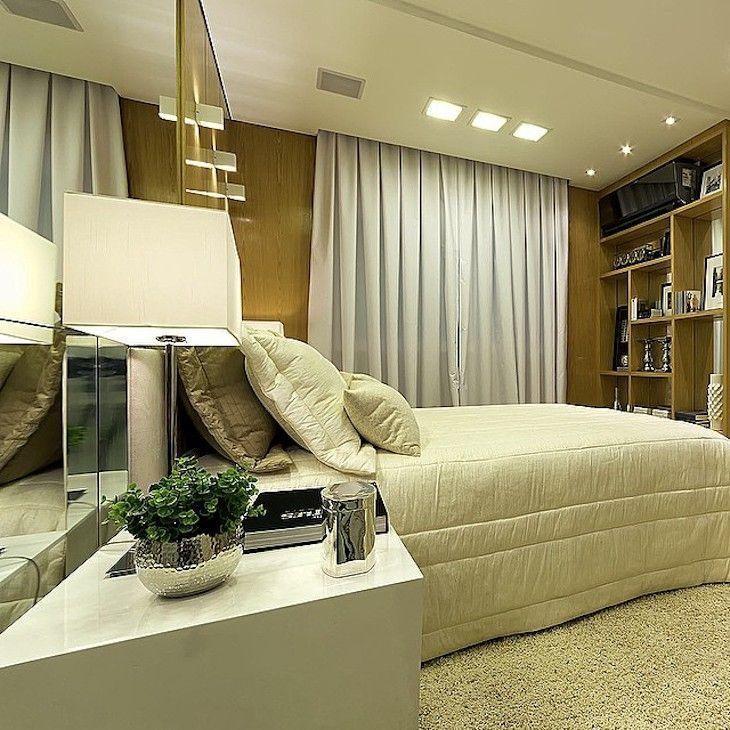
44 Controlled Clarity at the Right Measure
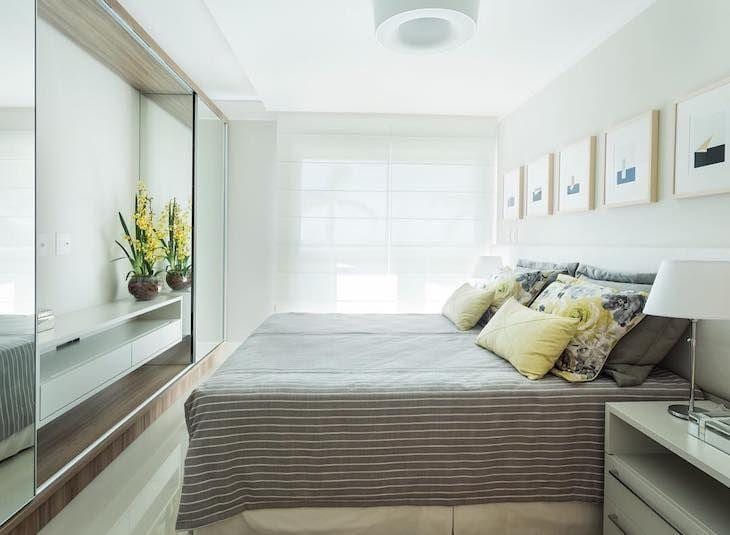
45. a luxury only
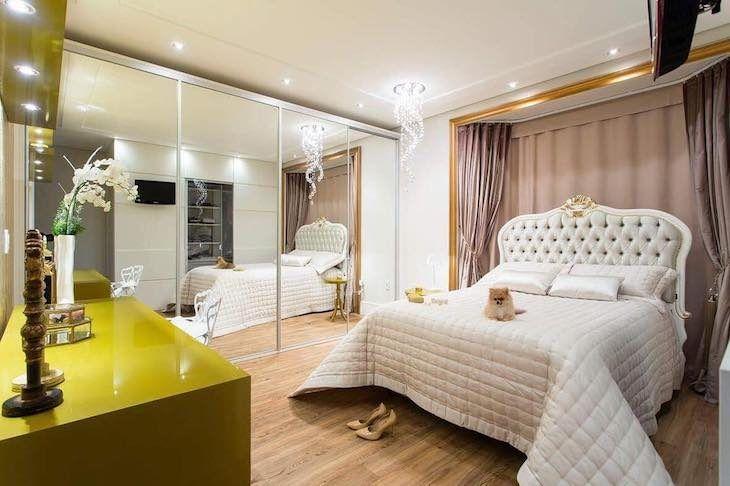
46. two in one
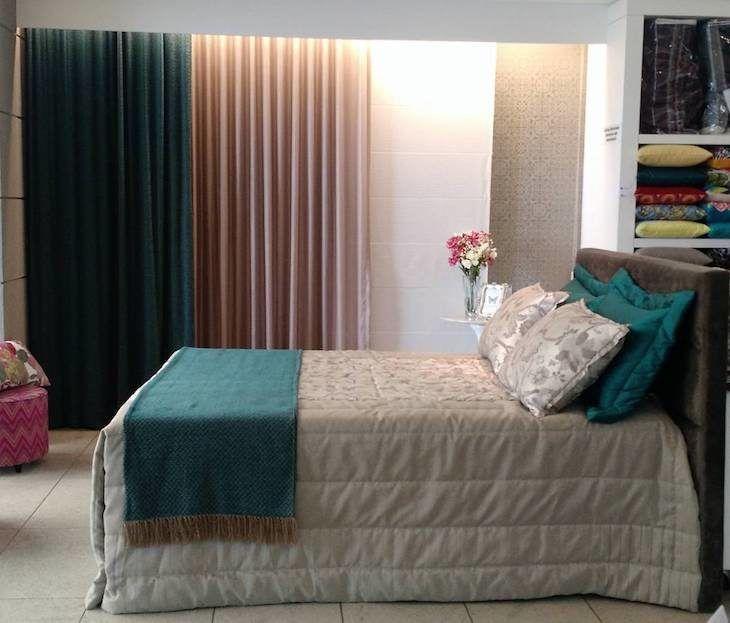
47. all clear
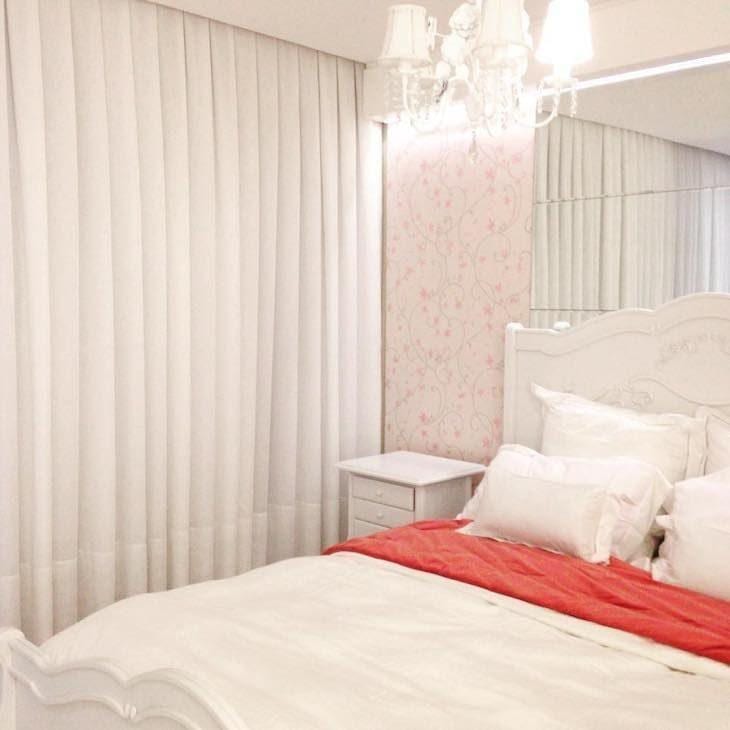
48. a glamour beating
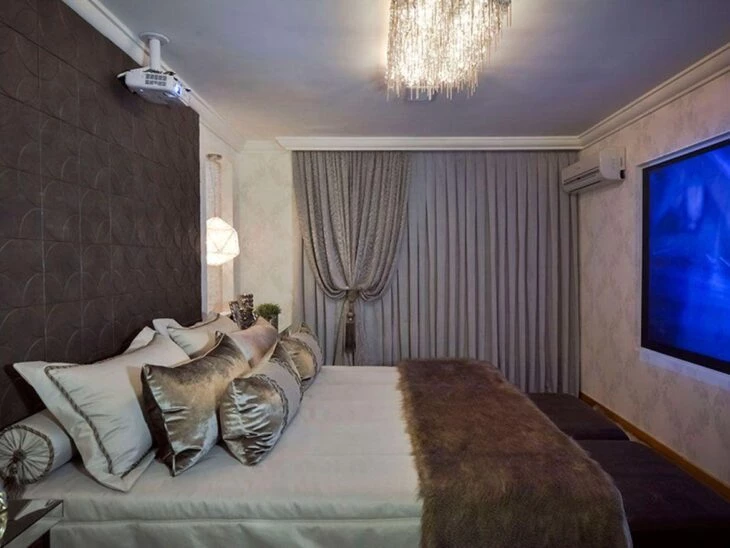
49. fabric blending
The architect ends with a very important tip: "before buying it is important to check the type of fabric of the curtain, because some shrink during washing. In addition, if you intend to wash the pieces at home, choose synthetic fabrics - natural fabric curtains should only be washed in specialized laundries. It is also important to check the color and the incidence of sunlight on the curtains.the environment where the curtain will be, because the colored models tend to fade with the incidence of sunlight.
All provisos aside, it's time to put this project into practice and then enjoy every minute of the comfort of your room!


